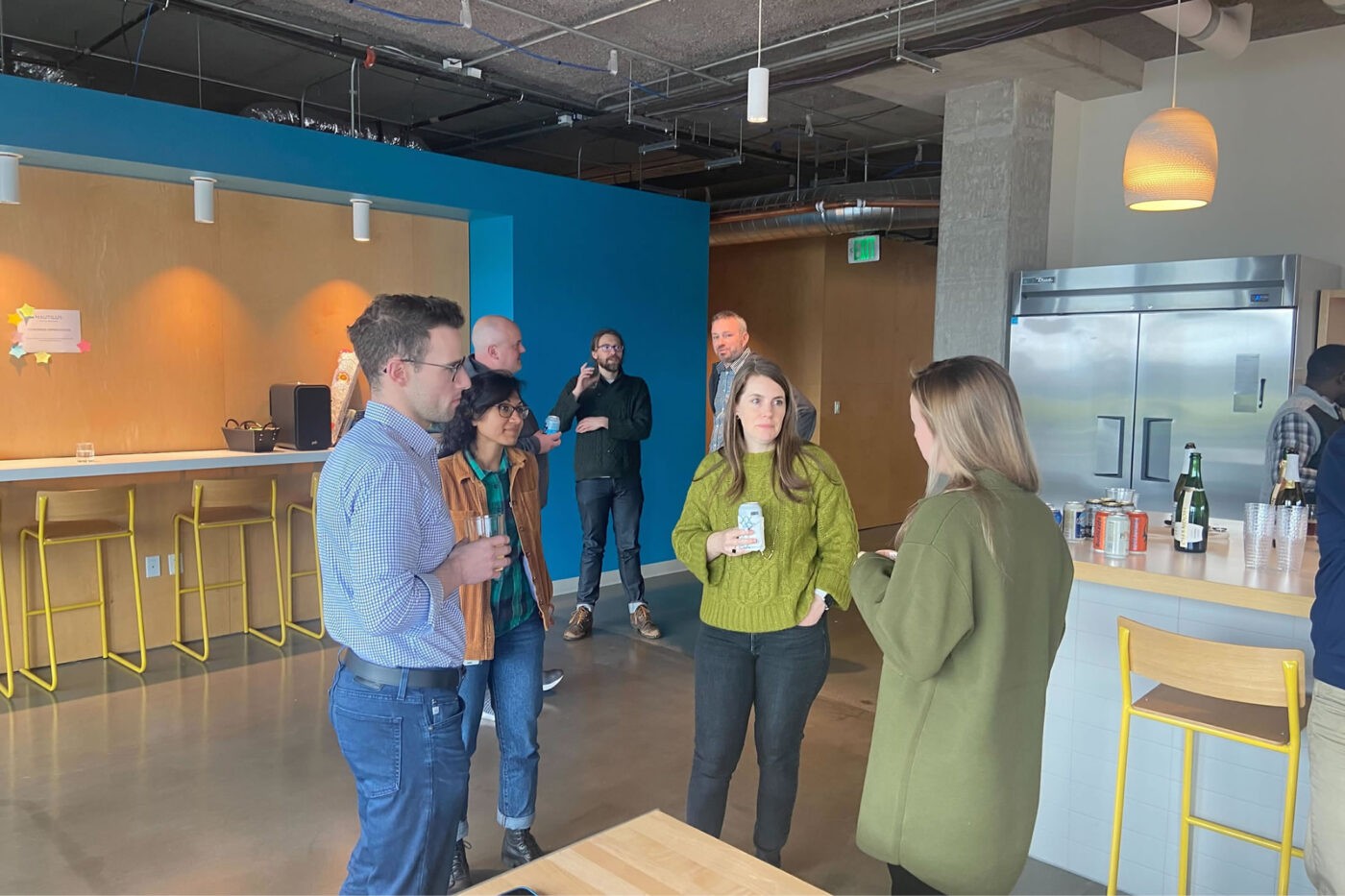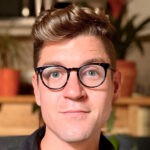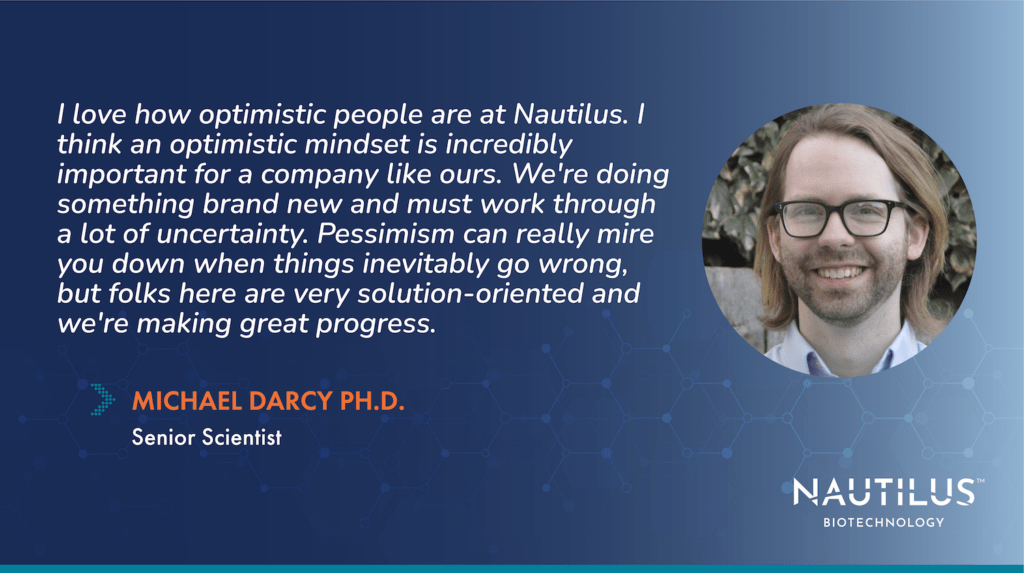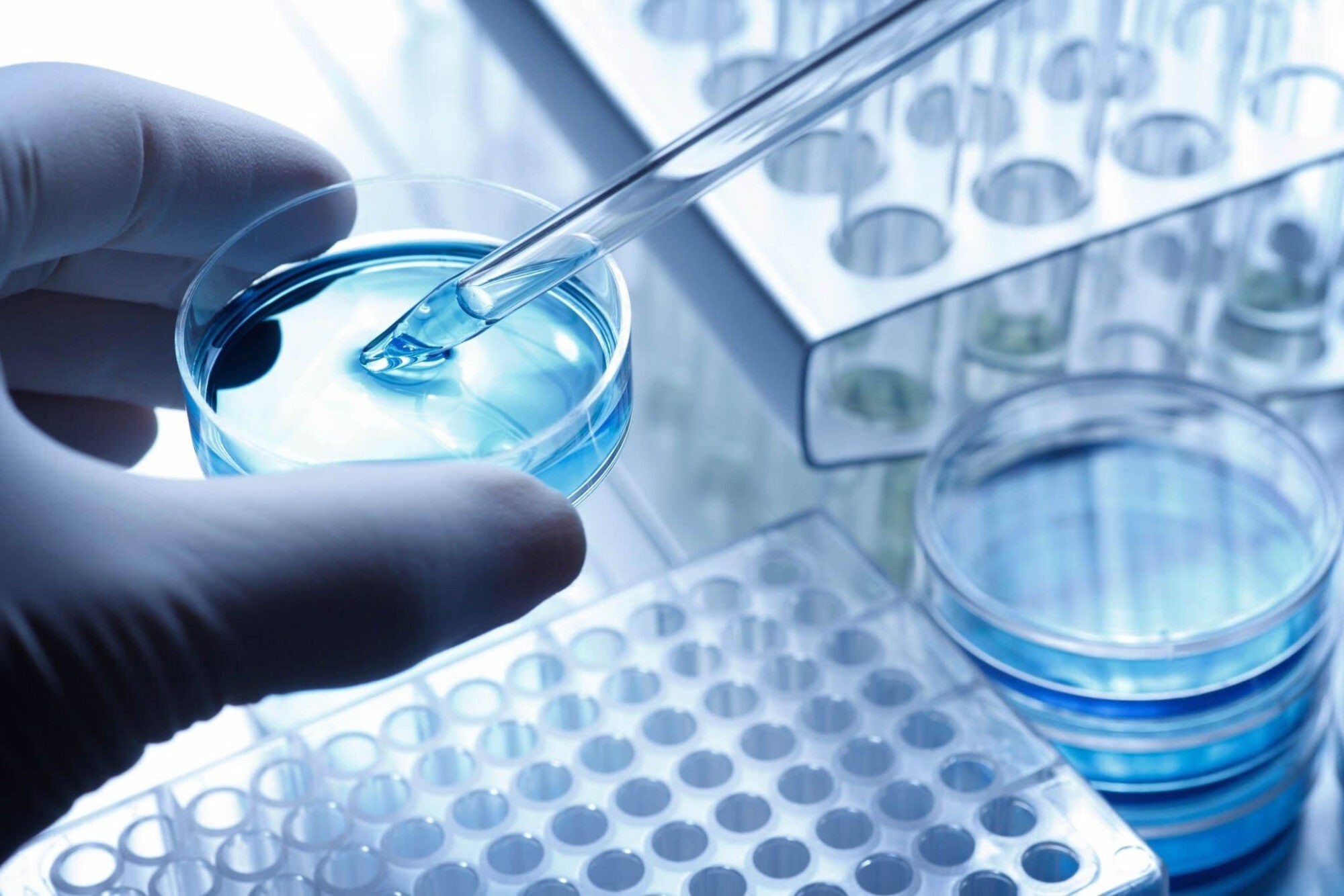
Life at Nautilus Interview with Michael Darcy Ph.D. – Senior Scientist

Tyler Ford
April 10, 2025

Michael Darcy is a Senior Scientist at Nautilus with a diverse background in physics, biology, chemistry, and engineering. For a company like ours creating a whole new way to measure the proteome, he has an ideal mixture of science and engineering mindsets. On the scientist side, he loves to explore new solutions to problems, while on the engineering side, he makes sure to parameterize and thoroughly define problems so he can understand why solutions do or do not work and even model outcomes. Below you’ll learn how Michael came to embody this mixture of scientist and engineer and why he is a great fit for Nautilus.
How did you get interested in science and engineering?
As far back in school as I can remember, I’ve wanted to dig deeply into why things work the way they do. For instance, I have a visceral memory from when I first began learning about gravity. My teacher described how all things fall at the same rate regardless of mass and demonstrated this with baseballs and bowling balls. It kind of broke me because I could not fathom WHY very heavy things and very light things fall at the same rate. It literally brought me to tears. I would say that this deep-seated need to understand why things work the way they do is what ultimately drove me to pursue physics in college.
On the engineering side, I’ve always loved to build things. I think part of this comes from helping my father with the computer repair shop he used to run out of our house. I started by holding a flashlight for him but eventually got to tinker myself. I continue to love building and optimizing my own computers to this day.
Were there any fun ways your love for science and engineering manifested growing up?
Haha, definitely. One of my hobbies growing up was looking at the moon through a telescope each night and drawing it. Believe it or not, I was drawing the moon on Christmas Eve one year and saw something flash across it. It must have been a shooting star or something, but I was convinced I saw Santa Claus and believed in him for longer than I should have as a result. Such moments are why I love science. Through scientific exploration, you get to see things you’ve never seen before, things that really tap into your sense of wonder. While my training has taught me to avoid conclusions that come from old biases (such as believing in Santa Claus), I very much retain the sense of wonder that comes from seeing and doing new things.
What has your career path been like to this point?
In college, I majored in physics but took a bunch of classes in biology and chemistry. I even wanted to double major in physics and biology. It wasn’t ultimately feasible, but I made sure to take classes that fulfill my need to learn about all aspects of science. Then, when I began looking for work after college, I was really hoping to build things as an engineer. I quickly learned there’s a perception that people trained as scientists cannot build things. I needed an engineering degree or experience in something related to engineering, so I went back to school and got my PhD in physics while largely focusing on a bioengineering project involving DNA origami. I still didn’t technically get an engineering degree, but I was able to land a job as an engineer at a next-generation sequencing company.
Working in next-generation sequencing was a good fit for me at the time because the field was still a bit exploratory and could scratch my scientist’s itch to learn new things and my engineer’s itch to optimize the next-generation systems we were building. Ultimately however, the next-generation sequencing space began to feel a bit too established. I wanted to do something that was truly new and that’s what initially attracted me to Nautilus. In next generation sequencing, we were moving from N = a few people using our technology to N = many people using our technology. At Nautilus, we’re moving from N = 0 people using our technology to N = a few people using it. We must build something that works reliably, but we get to explore a much wider range of ways to get there. Building first-in-world systems is especially exciting, especially in a fast-moving field like biotechnology tooling.
What do you like about working at Nautilus?
On the practical side, I get to leverage my experience in DNA nanotechnology here. While there’s recently been a ramp-up in academic publications surrounding things like DNA origami, there are very few companies that have a particularly well-established use case for the technology. Often it seems like it’s a solution looking for a problem. In contrast, at Nautilus we have a defined problem: we need a way to capture diverse proteins and deposit them on a patterned surface. It turns out DNA nanotechnology is potentially a great solution.
Then, going back to my science and engineering mindsets, I think my roughly equal balance between them fits the needs of Nautilus well at its current stage. We have a defined goal of comprehensively and accessibly measuring the proteome as well as a defined plan for how to get there, but there’s a lot of technology exploration that needs to be done along the way – my scientist side loves this. On the flip side, we’re developing a platform that must be incredibly sensitive, precise, and reliable. Thus, I’m very focused on parameterizing our explorations so we know how to optimize them and can quickly troubleshoot solutions if things go wrong – my engineering side loves this.
In addition, my broad expertise makes me comfortable talking with mechanical engineers, software engineers, biochemists, bioinformaticists, and really anybody working on the platform. I think this is beneficial because it helps me translate efforts across teams and more efficiently reach useful solutions.
Finally, I love how optimistic people are at Nautilus. I think an optimistic mindset is incredibly important for a company like ours. We’re doing something brand new and must work through a lot of uncertainty. Pessimism can really mire you down when things inevitably go wrong, but folks here are very solution-oriented and we’re making great progress.
How do you hope people will use the Nautilus Platform?
I’m generally excited about the platform’s potential to advance our understanding of biology, but I’m particularly excited to see how people use the knowledge they gain from the platform to build things (I even wrote a blog post about this and hope to do similar work myself!). There are many complex biotechnologies being built right now (think CAR-T cells for example). People once thought you could just put a few proteins into a cell and give it a new function, but now it’s clear that you really need to know how to engineer the full system, not just a few proteins, to get these biotechnologies to work. Our platform will hopefully enable people to define the proteomic parameters that enable such technologies to function optimally or even define the vast mix of proteins required for a cell to adopt a complex function in the first place. I cannot wait to see what people build with this kind of information.
MORE ARTICLES
